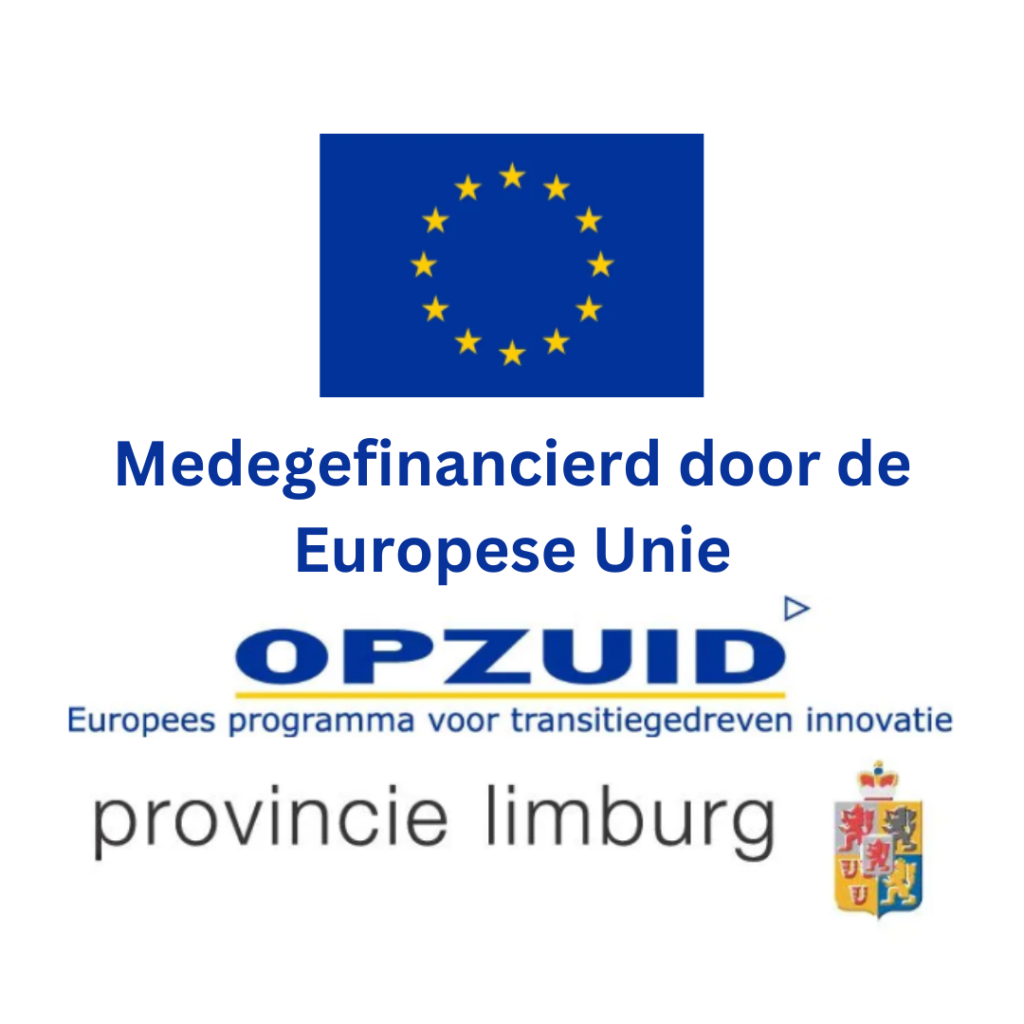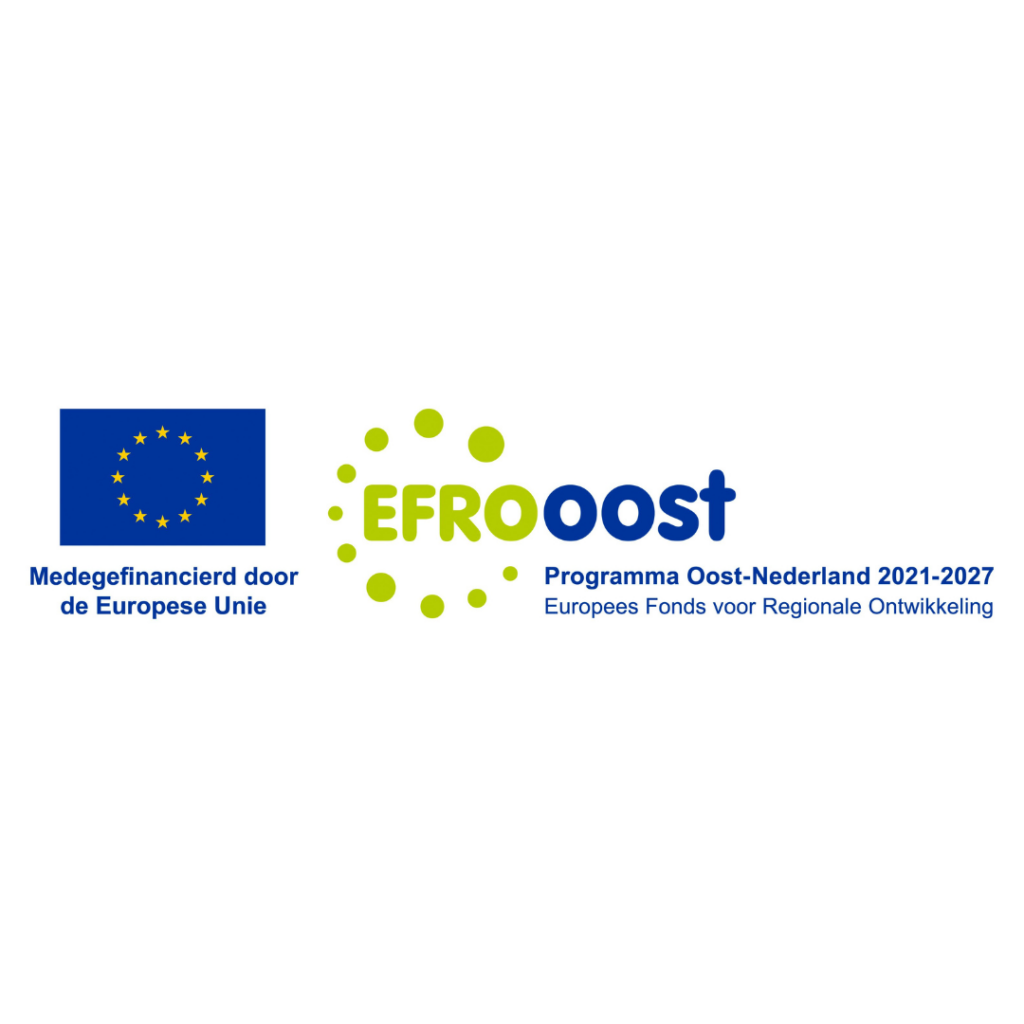The RECLAIM Project
Compoform is proud to share its partnership with OPZUID, the European Program for Transition-Driven Innovation, in co-financing the RECLAIM Project.
This project focuses on the development of innovative recycling techniques for thermoplastic composites (TPC), with a focus on fiberglass-reinforced thermoplastic composites. These materials are widely used in sectors such as the automotive industry because of their strong and lightweight properties. Unfortunately, the recycling process for glass TPC is complicated because of the long glass fibers that can cause damage to processing equipment. The goal is to develop a breakthrough recycling technology within three years. This system will be able to process different types of TPC waste, mainly glass-PP, while maintaining the length of the glass fibers. This preservation of fiber length is crucial because it results in improved mechanical properties of the recycled material, such as stiffness and impact resistance. Expected results include a TRL7-level validated pilot line. Several new manufacturing technologies will be applied to prototype finished products.
This project is being carried out in collaboration with our valued partners:
The PV-integrated roof with ease project
This project aims to develop a lightweight, integrated photovoltaic (PV) roof system for applications where traditional solar panels are unsuitable. The self-supporting roof panels, embedded with full-surface solar cells, maximize energy production and simplify the installation process by combining the roof and solar panel into a single step.
Motive
In the Netherlands, approximately 30-40% of existing commercial roofs cannot support traditional solar panels due to their weight. This issue is especially prevalent in agricultural buildings like barns and stables, where aging asbestos roofs are due for replacement, covering an estimated 70 km² of roof space nationwide. Currently, there is no viable solution for equipping these roofs with lightweight solar panels. Moreover, existing panels, made primarily from glass and aluminum, are not designed for circularity, meaning they are not recyclable after their 25-year lifespan.
Activities
The project will focus on the design and development of lightweight, integrated PV roof components, along with the necessary electrical systems and installation accessories. A 4,000 m² pilot roof will be constructed to test the solution across technical, operational, and economic dimensions.
Objective
The core aim of this project is to create a large-format, lightweight, integrated PV roof system. The collaboration between Solarge, a specialist in lightweight and circular solar panels, and Giant Leap Composites, an expert in composite sheet materials, will yield a self-supporting roof panel featuring full-surface solar cells for maximum electricity generation.
Expected results
The project aims to deliver a fully self-supporting, lightweight integrated PV roof section, complete with the required manufacturing technology and machinery to ensure watertightness and seamless connection between individual sections. The new design promises both time and cost savings by eliminating the need for separate roof construction and solar panel installation. This innovation opens up opportunities for decentralized renewable energy production in previously inaccessible areas. Additionally, the project will contribute to the Southern Netherlands’ economy by generating new knowledge and fostering technological advancements in next-generation solar roof panels. The consortium’s business models are expected to lead to new product lines and market opportunities in the region.
The CircuLEV Project
With the support of the European Regional Development Fund (ERDF) and the province of Gelderland, through the ERDF-East program, the CircuLEV project has successfully launched. This ambitious initiative emphasizes the commitment to innovation and sustainability within the region and actively contributes to the circular economy.
CircuLEV is a collaboration between four leading partners. The consortium combines their expertise and resources to develop and produce an advanced prototype: a Light Electric Vehicle (LEV) that is fully circular. The project aims to achieve a TRL8-level prototype, meaning the technology is nearly ready for market introduction.
The focus of the project is on developing an innovative LEV that combines sustainability and performance. The vehicle’s battery is designed for a long lifespan, highlighting the commitment to efficiency and ease of use. Additionally, the vehicle’s body is fully made from 100% recyclable thermoplastic composites, contributing to circularity and reducing waste streams.
Through this project, the consortium is taking a significant step towards sustainable mobility solutions, where technological innovation and environmentally responsible materials come together to create a positive impact on society and the environment.
This project is being carried out in collaboration with our valued partners:

